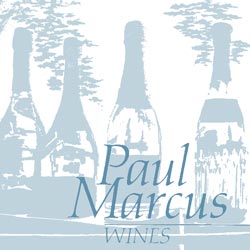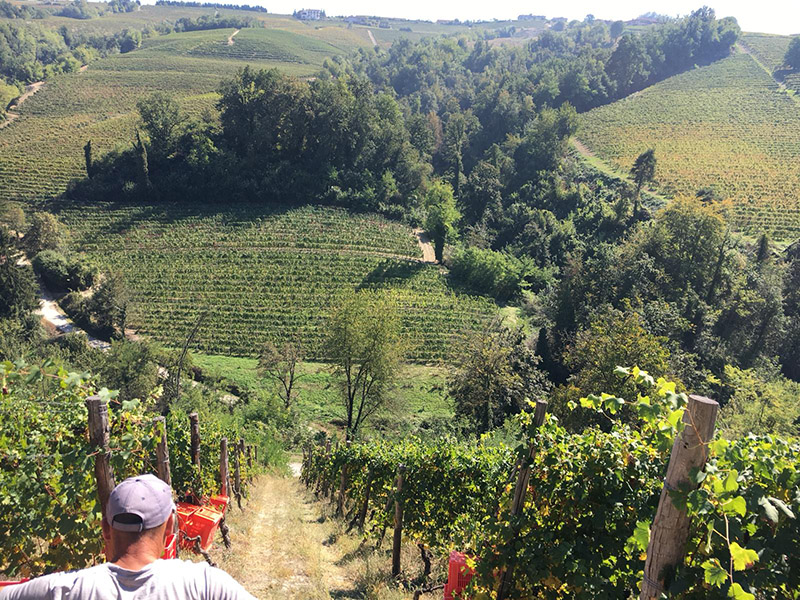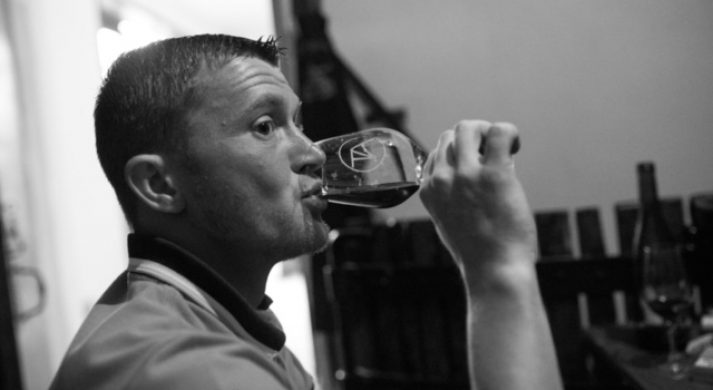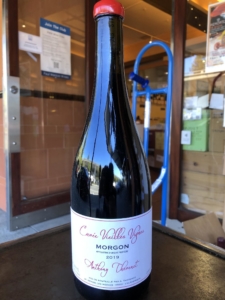A customer recently threw me for a loop. His brother, he said, insisted there was no reason to prefer “organic” wine because there was no Scientific Evidence that any effect on your health would ensue from doing so. This represents a basic and common misunderstanding. As was said in an Outer Limits episode many years ago: “Your ignorance makes me ill and angry.” Grrr.
I recently asked Ferdinando Principiano, a noted Piemonte producer, why he switched to organic practices 20 years ago. He had already shown us a native flower that had re-appeared on his property, and nowhere else, after 10 years of careful stewardship. He talked about the stream that he used to catch fish in as a boy that no longer supported fish and how determined he was to change that. And he also said there were days, when he finished spraying pesticides, that he would come home and throw up, not to mention the headaches and his trouble breathing.
*****
Not long ago, I spent the day at a friend’s house in Sonoma Valley. The property is bordered by an olive grove and a vineyard. It’s ridiculously nice. Bucolic. But he took me aside and said that sometimes, at 4 in the morning, he sees people in hazmat suits spray the vineyard. Not bucolic. (I wondered how much of the decision to spray at that time was concern over leaf burn and how much was “optics.”) Of course, in California, the owner of the vineyard hires laborers to do the dirty work, so he or she will never experience what Ferdinando personally experienced, and therefore, may never have a similar “aha moment.”
I don’t think it’s likely that the probably minute amounts of pesticide and herbicide and fungicide residue that transfer from “conventionally made” wine to the consumer would have an effect on a person’s health. At least not compared to the shrink-wrapped, processed meat we’re cooking on our Teflon skillets. (Add your own examples ad nauseam…) But that’s not the whole story.
*****
We asked Ferdinando why he doesn’t draw attention to his costly and labor-intensive farming on his wine labels. He said he didn’t want to say organic is good and conventional practices were bad because that would insult his parents. Because his parents had not practiced organic farming; because they couldn’t afford to. As we heard from many in the Langhe region in Italy, Ferdinando said his grandfather’s generation was really poor. Until very recently, grape growers had to sell their grapes to the highest bidder–and the bidding was rigged against them.
When you go fully organic, your yield per acre falls dramatically. (This is a serious and not romantic aspect of organics.) If you can’t get more money per ton of fruit, you’re simply slashing your income while increasing your labor. Being able to farm organically requires buyers who are willing to pay more for it. Ferdinando knows how lucky he is to live in a period where he can farm this way: “I have this good fortune, and I must do something to merit it.”
There are so many farmers like Ferdinando–in Italy, in America, everywhere–that want to farm without the chemicals that require hazmat suits, that want their kids to be able to safely eat the fruit and sniff the flowers in their backyard vineyards, and we live in a time where they can.



